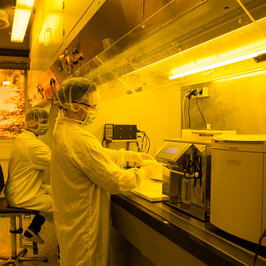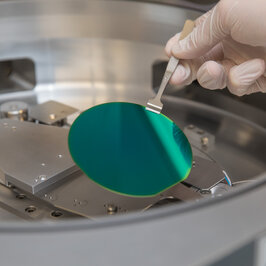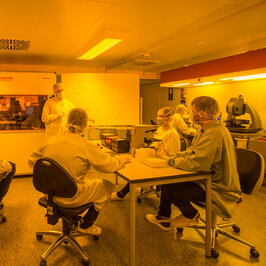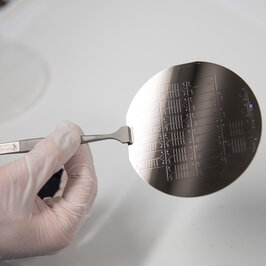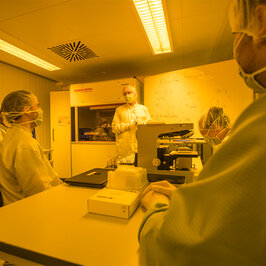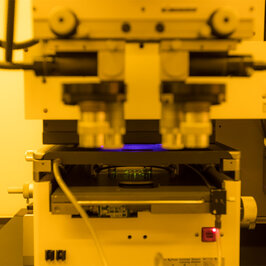Smart interaction
With this master's degree progamme, we specialise in smart devices, i.e. devices that can make "their own" decisions. It deals with the sensor values with which such systems work and, of course, with safety aspects, reliability, miniaturisation, energy consumption and intelligent data processing. We'll show you how to look at systems as a whole and help shape the development that will enable systems to decide on their own maintenance times in the future, or intelligent implants to be used in medical technology, or cars to react intelligently to sensor data...
Programme content and structure
Smart systems are - usually miniaturised - systems that communicate with their environment via sensors and actuators. They offer highly developed functionalities in the form of signal processing, data analysis, (wireless) communication, control and/or decision-making. Ideally, smart systems work largely autonomously, which requires a wireless power supply or energy harvesting solutions.
Microsystems represent an important subclass of smart systems. They are characterised by the realisation of systems and components in the micrometer range. These can be produced cost-effectively in large quantities.
Successful graduates of the Master's of Smart Systems (SMA) thus acquire a master's degree in a modern and increasingly important field of technology.
Modules and focuses
The programme is divided into modules, five of which are in the first and second semesters. The third semester is a dedicated thesis semester. The two semesters of study lead to the overall qualification goal in specialist modules. Each semester also includes an elective module, which allows you to choose your own area of specialisation. We offer you a catalogue of courses to choose from!
Entry requirements
Who does our programme suit
We have designed our "SMA" master's for graduates of courses such as electrical engineering / electronics, computer engineering, microsystems technology and mechanics-oriented courses. However, it is also open to foreign students who have at least a bachelor's degree.
Half of the courses on the master's programme are taught in English. After two successful semesters of study and a thesis semester, you will be awarded the internationally recognised degree of Master of Science in Smart Systems.
In view of the rapidly advancing globalisation of all economic sectors, this qualification opens up far-reaching career opportunities for you!
What's included
Your career prospects
Qualified for best opportunities and goals
Smart Systems can be found in industrial fields such as automotive, automation, communication, microsystems technology and the manufacture of everyday objects.
Our graduates' professional fields are high-value activities such as innovation, research and development tasks in all these areas as well as related fields in industrial companies and public research institutions, e.g. as development engineers, system designers or consultants.
Our cooperative doctoral programme, "Generating Mechanisms of Microstructures", run in collaboration with the University of Freiburg, offers you the possibility of a subsequent doctorate.
Events
Unfortunately, there are currently no events planned that we can display here. We have compiled an overview of all planned events in the event calendar.

